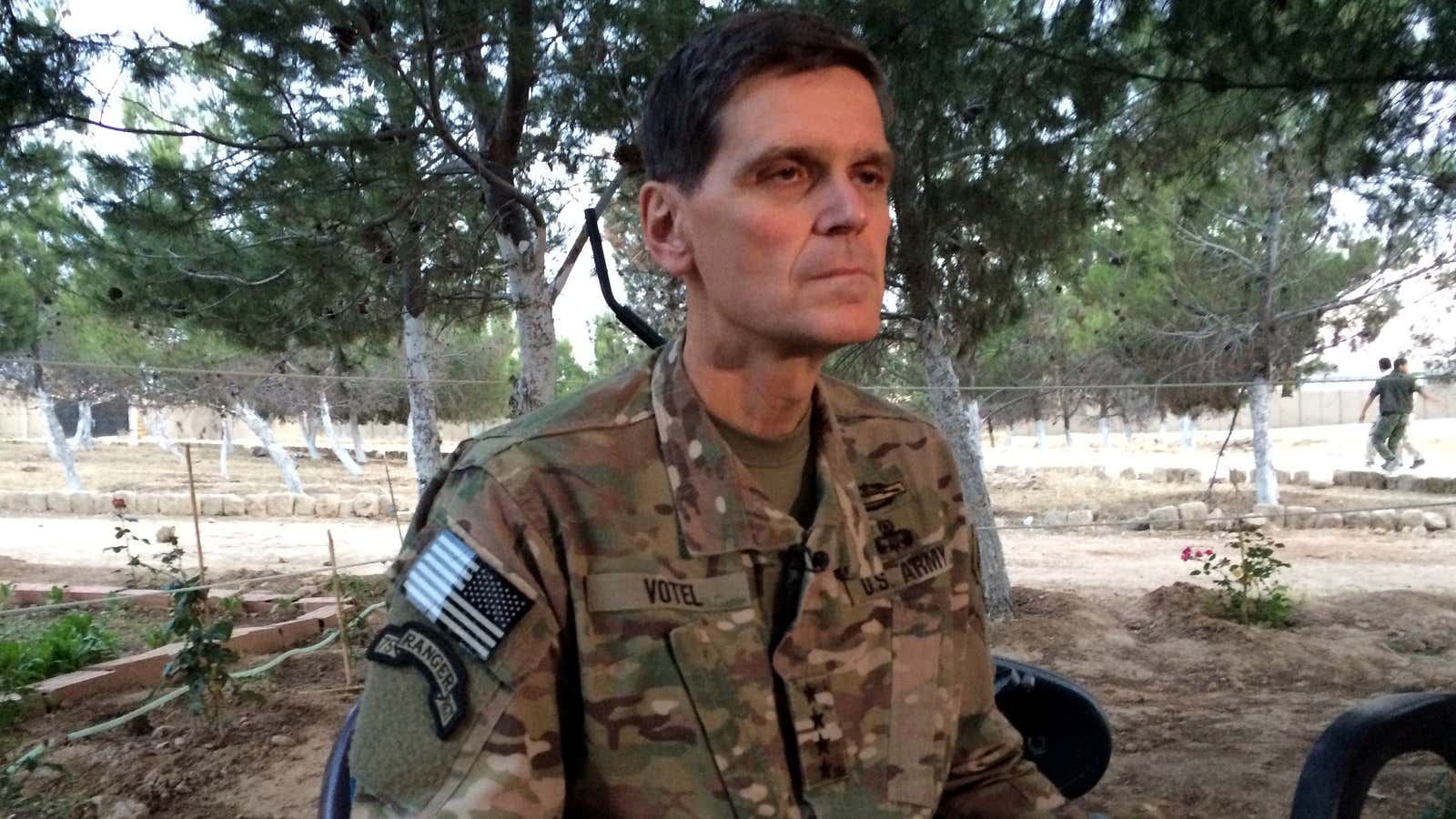Heavily armed US soldiers have been photographed assisting a Kurdish militia unit fighting to re-take Raqqa, the Syrian city that the Islamic State (ISIL) calls its capital.
The pictures were taken on May 25 by an Agence France Presse correspondent, who quoted a Kurdish commander saying that US soldiers are “present at all positions along the front.” This would seem to weaken claims by US president Barack Obama and the Pentagon that US soldiers are not directly fighting ISIL in Iraq and Syria, but simply advising local allies.
Numerous reports in the days prior suggested that a major offensive was beginning in Syria, as local fighters connected to the US-backed Syrian Democratic Forces gathered 30 miles north of Raqqa, where US forces were later spotted.
“They are not on the forward line,” Pentagon press secretary Peter Cook told reporters when asked about the image. “They are, again, in an advisory role to those forces.” But the line between “assisting” allied troops and actual combat has become increasingly thin, as US soldiers are now providing direct fire support and calling in air strikes as well as offering timely advice to local commanders.
In Oct. 2015, US Army master sergeant Joshua Wheeler was killed during a joint US-Iraqi raid on an ISIL prison. The operation was launched on the spur of the moment, when coalition forces received intelligence that a massacre was imminent, and resulted in the rescue of 70 hostages. Wheeler’s death in the firefight was described by Cook at the time as ”consistent with our counter-ISIL effort to train, advise, and assist Iraqi forces.”
In March 2016, US marine staff sergeant Louis F. Cardin was killed when ISIL fighters fired rockets into a US base in Iraq; the Pentagon described him as “providing force protection fire support at a recently established coalition fire base” at the time of his death. And in May, Navy Seal Charles Keating was killed while coming to the aid of American advisors caught in a surprise attack by ISIL troops.
White House officials continue to press the combat distinction, even after approving the deployment of 250 more elite soldiers to Syria and the steady increase in airstrikes in the theater. Former defense secretary Robert Gates, who served in the George W. Bush and Obama administrations, recently said that “[US troops] are in combat and these semantic backflips to avoid using the term ‘combat’ is a disservice to those who are out there putting their lives on the line.”
“While their presence in Iraq and in Syria is dangerous and, on occasion, our men and women in uniform have found themselves in combat situations that are dangerous, they have not been deployed to Iraq to wage combat on the ground against ISIL,” White House press secretary Josh Earnest said on May 20. ”That is very different than the decision that was made by President Bush to deploy more than 100,000 US forces on the ground in a sustained combat role where their principal responsibility was to seek out and engage the adversary in combat.”
One reason for these distinctions is likely that Obama is operating on sketchy legal authority in prosecuting this war, drawn from the Authorization for Use of Military Force (AUMF) passed in 2001 to fight against Al Qaeda and the Taliban in Afghanistan. The political specter of the Iraq conflict hangs over lawmakers, and despite repeated pleas, the White House cannot get Congress to grant him new war powers to formally attack ISIL, even as lawmakers urge the war on.
While politicians appear content to ride out the election year with ambiguity about the US role in the battle against ISIL, at least one soldier has taken matters into his own hands. Army captain Nathan Smith, who supports US military action against ISIL, nonetheless filed a lawsuit against the government on May 4, alleging that current operations against ISIL in Syria and Iraq are illegal because the president lacks constitutional authority to prosecute war there.
But don’t consider Smith’s lawsuit combative—he’s just advising the government.




